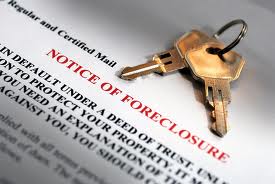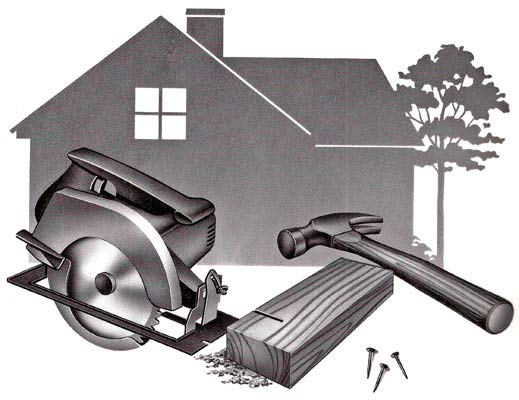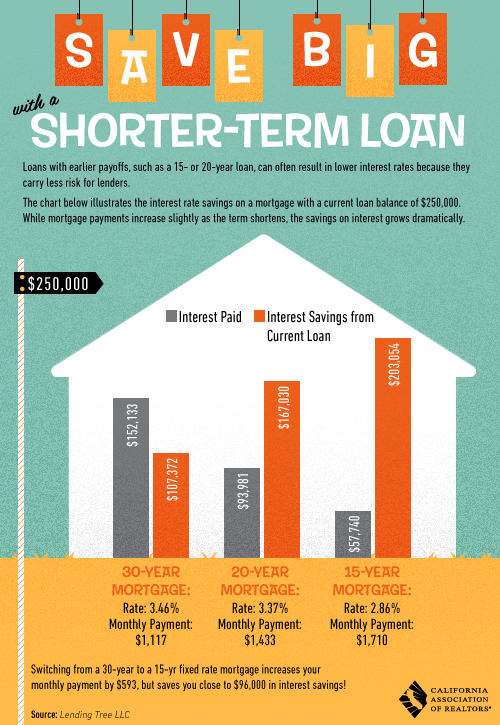
BLOG
Painting Your Own Home: Tips to Make the Process Painless

Painting Your Own Home: Tips to Make the Process Painless
While it’s might seem easier to hire professionals to paint the house, but with a little research you can find the job is not as intimidating as it seems. With a few free days set aside and some preparation, painting one room (or multiple) is easily doable for anyone. Here are a few things to consider before you start.
Apply a Primer Coat
Preparation entails most of the painting process. It’s easy to become frustrated during the preparation stage, because prepping to paint can take longer than the actual painting component of the project.
Interior walls aren’t always perfect, and painting the walls is a perfect opportunity to fix those imperfections. If you’re using a putty or a filler to patch holes, the paint will react differently to those substances than it will the wall itself. The solution here is to prime your walls, so the new paint color has a uniform surface to adhere to. It’s one simple step that doesn’t seem like much, but could end up saving you a whole lot of work at the end of the process.
Factor in taping time
Taping up the room is tedious work, but will be worth it when you don’t have to waste time being ultra-careful or nervous when getting close to edges. Instead of trying to take the tape off while the paint is still dry, wait at least 24 hours for the paint to dry, and use a knife to slice the tape off at the edge. If the paint is still even a little wet or gummy, don’t continue. Make sure the knife is sharp enough and pull the tape away at a 45-degree angle, making sure not to rip the paint.
Set up with clean-up in mind
To protect floors, a drop cloth is a necessity. In some cases, cotton or canvas drop clothes can work better than plastic. Plastic drop cloths can be slippery and don’t easily stay in place, especially when ladders are involved. Any splatters or drips of paint that fall onto a plastic drop cloth won’t dry or absorb right away and can be easily tracked throughout the rest of your house. A canvas or cotton drop cloth will be more stable and will protect the floors better. Tape the edges of the drop cloth to the tops of the trim to protect both the floor and the trims from any splattering or dripping paint.
Work top down
Not only does it prevent drips from ruining anything you’ve already painted, but it keeps the walls and baseboards free of any dust or debris from sticking to wet trim. Paint the ceiling first, move to the walls and possible crown moldings. Only then should you move to any trims around windows or doors and finish with the baseboards. Not only will this keep a system in place to ensure there’s no questioning what’s been painted and what hasn’t, but it’ll keep things clean.
Check thickness of previous paint layers
Cracks on an exterior paint job don’t reflect the owner’s best intentions and should be fixed before the damage is too much to fix. Too thick of a layer of paint means that the paint might just be too heavy to stay, and will start to crack and to peel off. It loses its grip and can’t attach to the other layers of paint. In older homes, it’s likely that some of those layers of paint have lead in them, in which case you’ll need to look into how to remove it safely. The EPA has guidelines here. This could be the one step that requires you to outsource, if the layer of paint is extremely thick, because removing it completely (and correctly) will ensure the next coat of paint will attach correctly. Hiring a home washing company can help you identify these cracks in exterior paint as well. If anything, have the exterior of your home professionally power washed, so the paint will have a clean surface to adhere to.
Using these tips, ideally the house-painting process will be doable for anyone. Prepare yourself to set aside time for set-up, knowing that it will help when you’re done painting and ready to clean up. Instead of hiring painting professionals, save some money for decorating and tackle the job yourself.
Curious to know how much your Southern California home is worth! Get an instant report now! www.CaliOnTheMove.com
Bio: Matt Lawler is an Internet marketing specialist from Tempe, Arizona where he attended Arizona State University. Whenever he can step away from the computer, Matt enjoys playing sports, traveling and exploring the great outdoors. Follow him on Twitter.
Laura Key, REALTOR® Cal BRE 01908085 310-866-8422 Laura.A.Key@gmail.com www.KeyCaliforniaHomes.com
Report: Default Rate on HAMP Mods High
Are you in trouble? Are you facing foreclosure? Call me, let's have a free consultation along with coffee! Laura Key 310.866.8422
The high re-default rate on mortgages modified through the government's Home Affordable Modification Program is mostly because of borrowers who received the smallest reduction in payments through the program, are still underwater on their loans, or have subprime credit scores, according to a new report by the Special Inspector General for the Troubled Asset Relief Program.
Of the nearly 1.2 million mortgages modified through HAMP in the last four years, 306,000 borrowers have re-defaulted on their loans, the report said. More than 88,000 more borrowers are at risk of re-defaulting, too.
The report also found that the longer a home owner stays in the HAMP modification program, the more likely they are to default. Borrowers who have been part of the program since 2009 have a re-defaulting rate of 46 percent.
HAMP helps borrowers by reducing the interest rate on at-risk mortgages, extending loan terms, or reducing mortgage principal.
"Treasury needs to research why so many borrowers are dropping out of the program," says Christy Romero, the head of SIGTARP.
Source: “Borrowers in Obama housing program re-defaulting, watchdog says,” CNNMoney (July 24, 2013)
Bankruptcy And Buying A House - Is It Smart To Buy A House After Bankruptcy?
Each year, millions of people file bankruptcy as a means of erasing their consumer debts. While this approach may relieve stress, a bankruptcy is damaging, and will hang over your head for the next ten years. Still, it is possible to overcome bankruptcy. The key is making smarter financial and credit decisions. With this said, some people choose to purchase a home after a bankruptcy. Here are a few pointers to consider when buying a home.
Each year, millions of people file bankruptcy as a means of erasing their consumer debts. While this approach may relieve stress, a bankruptcy is damaging, and will hang over your head for the next ten years. Still, it is possible to overcome bankruptcy. The key is making smarter financial and credit decisions. With this said, some people choose to purchase a home after a bankruptcy. Here are a few pointers to consider when buying a home.
Reasons to Delay the Buying Process after Bankruptcy
If you consult with mortgage or financial experts, they will likely discourage you from buying a home following a bankruptcy. After your bankruptcy is discharged, there is a black cloud that looms over your credit report.
When any prospective lender reviews your report, they will be notified of your recent or past bankruptcy. In some instances, this justifies an immediate denial. On the other hand, there are lenders eager to help you establish or rebuild your credit. Thus, they will approve a loan request. Nonetheless, the penalties are steep.
Higher mortgage rates can be anticipated when purchasing a home after bankruptcy, especially if you have not established other credit accounts. Mortgage lenders consider two factors: credit scores and credit reports.
Although a bankruptcy appears on your credit report, having a high credit score will increase your odds of getting a comparable rate. Unfortunately, if you buy immediately following a bankruptcy, you will not have the opportunity to boost your score.
Reasons to Buy a Home after Bankruptcy
Lenders will approve mortgage loan applications one day following a discharge. Therefore, it is possible to get a home after a bankruptcy. Buying a home is perfect for rebuilding credit. Moreover, it is the quickest way to increase your credit score.
After a bankruptcy, the average person has a credit score below 600. Good credit consist of credit scores 650 and above. Maintaining current mortgage payments will gradually increase your score. After two years of regular payments, you will have established a good payment history. Hence, you may qualify for a low rate refinancing, which may lower your mortgage payments.
Ready to search for your new home? Start here!
Wells Fargo, Citigroup Halt Foreclosure Sales
Banks seem to be moving in the right direction on this action. But is it too late? Call me if you are in need of help! Laura Key 310.866.8422
Wells Fargo and Citigroup have temporarily halted foreclosure sales in several states, taking precautions after a federal regulator released new guidance on minimum standards for foreclosure sales.
The Office of the Comptroller of the Currency (OCC) recently released the new standards. The OCC’s directive mostly consists of 13 questions banks need to ask themselves before selling a home in foreclosure, such as whether the borrower is protected from foreclosure by bankruptcy or if the borrower is in an active loan modification plan.
JPMorgan had also mostly stopped its foreclosure sales after the OCC’s standards were released, but has since resumed sales.
Wells Fargo, the nation’s largest mortgage originator, has seen a dramatic drop in foreclosure sales while significantly decreasing the number of sales it’s processing. For example, foreclosure sales by Wells Fargo in California, Nevada, Arizona, Oregon, and Washington plummeted from 349 a day in April to less than 10 a day, according to Foreclosure Radar, a real estate monitoring firm based in California.
"Wells Fargo has temporarily postponed certain foreclosure sales while we study the revised guidance from the OCC," a Wells Fargo spokeswoman confirmed for American Banker. Citibank officials also confirmed the reason behind their halt in sales was to carefully review the new guidance.
"The OCC did not direct a slowdown or pausing," says OCC spokesman Bryan Hubbard. "However, if servicers are not certain they are meeting these standards, pausing foreclosures is a responsible and productive step."
Are you facing foreclosure? Contact me for a free consultation!
[contact-form subject='Help! Facing Foreclosure!'][contact-field label='Name' type='name' required='1'/][contact-field label='Email' type='email' required='1'/][contact-field label='Phone' type='text'/][contact-field label='Comment' type='textarea' required='1'/][/contact-form]
Source: “Wells, Citi Halt Most Foreclosure Sales as OCC Ratchets Up Scrutiny,” American Banker (May 17, 2013)What to Expect At a Foreclosure Auction
Whether you are an investor that would like to get into buying foreclosed homes for your personal use! Call me today! Laura Key 310.866.8422
Whether you are an investor that would like to get into buying foreclosed homes for your personal use or to flip the property or if you are having your home foreclosed on, you should know what to expect at a foreclosure auction. Of course, the actual steps that will be taken can vary a bit from state to state and from house to house, but it’s good to know what you will be getting into when you go to a foreclosure auction. Foreclosure auctions can be exciting, even fun, but knowing what to expect will help you make the most of the experience, whether you are an investor or a homeowner that is trying to get your house back.
Before the Auction
You’ll likely find out about the foreclosure auction in a local newspaper and on the flier may be information to pre-qualify for bidding. This will allow you to put down a deposit so that the auctioneer knows that you are a serious bidder and can fulfill your bid if you are the winning bidder. Being pre-qualified just sort of speeds up the process so that you don’t have to mess around with the deposit on the day of the auction. During this time you should also do some research on the house by looking into any liens that may be against the property, how much the property is worth, how much it has appreciated in the last few years, as well as property values in the area. If the home looks as though it will need some repairs, you should consider this as well when trying to come up with how much you will be willing to pay for the house. Without this research, no amount of knowledge about what goes on at a foreclosure option will help you because you won’t know where to start when it comes to actually making a good bid.
What Happens At the Auction
The auction will typically start with the auctioneer reading legal notices as well as a legal description of the property. The auctioneer will usually then begin taking bids on the property. If the auctioneer has pre-qualified bidders the process is more streamlined, if not, each time a bid is made the auctioneer will then ask for the bidders deposit check, which is typically right around $5,000 for residential auctions. After each bid the auctioneer will attempt to solicit bids for higher amounts. Each auction is different, but the auction increments usually are set by the auctioneer and may be by $100, $500, or $1,000 per bid. The auctioneer will continue to solicit bids by this increment until it is clear that the highest bid has been reached. Then, the auctioneer will announce, “Going once, going twice, three times, sold!” indicating that the auction is over and the property has been sold to the highest bidder.
Once the bidding has ended a foreclosure deed and purchase papers will be drawn up and validated by the new owner or purchaser and the mortgage holder. A grace will likely be given to allow the purchaser to find financing or to come up with the funds to cover the full amount of the bid. This grace period is usually 30 days unless the purchaser and the mortgage holder agree to other terms. After the grace period a closing will take place, so that the new owner can formally take the title to the property.
What Happens, Now?
The purchaser can do what he or she intended to do with the property, whether it is to move into the home or to sell it for full market value. The money paid by the purchaser will be distributed in order of priority, first of which would be taxes. After taxes money will be paid to the mortgage, then the second and third mortgage if applicable. If there is still money after paying these debts, remaining money will be paid to lien holders and creditors. There is a very slim chance that there will be money left over after all of the debts are paid, if this is the case then the monies will be paid to the former home owner.
What about the Original Owner?
The original owner will often be at the auction so that they can bid on their home, and this is legal as long as they have the deposit required. If the owner of the home that has been foreclosed does bid on the home they must remember that the deposit is not refundable and the deposit assumes that they will be able to finance the home within the grace period. Owners must also remember that if they buy the property back old debts may merge and become reinstated such as second and third mortgages that became void when the first mortgage foreclosed on the property unless one has filed bankruptcy and is truly free and clear of these debts. Owners will often drum up the funds to make the deposit so that they can have another 30 days to try to save their home. Owners may or may not be successful in their attempts to save their home at a foreclosure auction.
As you can see, there are a lot of things that go into a foreclosure auction, but none of them are all that difficult to understand, but knowing about them makes the auction more enjoyable. The auction itself is not all that complicated, but it can be very fast paced. At some foreclosure auctions there are a lot of people, at others there are only a few because of the location or just the debts attached to the property, or even the state of the property. If you are serious about the property you should pay close attention when bidding starts so that you are sure that you can get your bid in when you feel it’s time so that you have the best chance of being the top bidder.
Call me for more info! Laura Key 310.866.8422
What is the Difference Between the Note and Deed of Trust
It's important to know the basics of real estate if you are going to own a home! Call me to register for a FREE Homebuyers Course! Laura Key 310.866.8422
A note, usually known as a promissory note, which is a written promise to repay a loan. Whereas, a trust deed is a document used to protect paying back of a loan that is being documented as a lien counter to the borrower's real estate. It is necessary to use a promissory note in order to avoid any breach in future. The various important terms of the loan should be specified in a promissory note including the loan amount, rate of interest (if any), and terms and conditions of repayment. It must be signed by the borrower with date in order to make it a valid document.
A deed of trust is a document that involves three parties generally known as the borrower, lender and a trustee. This document includes all the basic terms of the loan and should be signed by the borrower. It is documented as a lien contrary to the borrower's real estate. It is generally taken as a collateral document that works consecutively with the promissory note. In this document, the real property of the borrower is guaranteed as a lien to the lender. In case, the borrower is not able to pay back the loan amount, the lender may take the borrower's real property by way of the system of foreclosure.
A promissory note is a legal document that laid out all the essential things like how and when the borrower will pay back the money to a lender, the interest rate and the schedule of payment. It contains the undertaking of the borrower to repay the borrowed money within the specified time period. It is the personal obligation of the borrower to repay the money and has no relationship with an y real estate or other property.
Therefore, it can be understood that although, both the Note and Deed of Trust are an agreement for repayment of a loan, the tow are independent elements of a common mortgage loan. A deed offers the lien on the property in order to secure repayment of the loan. And, the note is completely a commitment between the borrower and the lender. The terms of this agreement can be modified at any period of time with the consent of both the parties. The deed of trust appears in the public property records, whereas, the note is completely a private document that never appears in the public records and therefore it is administratively very easy to make any modifications in the note.
*Please note that the information contained herein is for general informational purposes only. If you are currently involved in a real estate transaction, please direct your questions to your real estate professional, title officer or closing officer.
Rising Housing Demand Leads to Homebuilder Lotteries
In California the inventory is extremely low. My buyers see this an an option! I hate that it's come to this! Just a year ago you did not have this issue!
Homebuyers clueless about mortgages
Educating homebuyers is one of my favorite things to do! Ask me about my homebuyers class! Laura Key 310.866.8422
The housing market is heating up, yet many house hunters are not prepared to take on the biggest purchases of their lives.
When it comes to mortgages, homebuyers answered basic questions about terms, how to choose a lender and financing wrong nearly one-third of the time, according to an April survey of more than 1,000 current and prospective homeowners by real estate website Zillow.
Among the survey's findings, 31% of buyers don't think it's possible to get a mortgage for less than 5% down; 34% don't know what the term "annual percentage rate" (APR) means and one in four believe you must close with the lender that pre-approves your mortgage.
"All too often buyers focus on negotiating a lower home price and ignore the importance of finding the right loan," said Erin Lantz, director of mortgages for Zillow. "Buyers should always shop multiple lenders and compare rates and fees and read lender reviews in order to find the best loan for their situation."
One example: 34% of respondents believe lenders are required by law to charge the same fees to all clients for credit reports, appraisals and the like. That's wrong. Fees vary from bank to bank and can often be negotiated.
But it's hard to compare those deals if you don't understand what mortgage terms, like "annual percentage rate," mean. The APR factors into fees, upfront points, origination and underwriting fees and other costs that borrowers use to compare the actual cost of loans.
Such knowledge gaps can have long-term consequences. About 34% of first-time homebuyers think they need a down payment of at least 5% to make a home purchase, but loans insured by the Federal Housing Administration can require as little as 3.5% down.
And 24% of buyers believe the best mortgage deals are available through the banks where they currently have their savings and checking accounts, but often competing lenders can undercut those banks by large margins.
"If a homebuyer can lower their interest rate by even half a percentage point, they can not only increase their purchasing power, but save thousands of dollars over the life of the loan," said Lantz.
For every $100,000 borrowed, a half percentage point lower rate would reduce payments by $28 a month on a 30-year, fixed rate loan. That adds up to more than $10,000 over 30 years. Or borrowers could choose to add that $28 savings to each monthly payment. That would shorten the term of the mortgage from 30 years to just over 27 and save $6,500 in interest paid.
Another costly mistake: Many house hunters go shopping with financing in place because it enables them to act more quickly if they see a home they want. But 26% of buyers believe that once they're pre-approved, they're obligated to close the deal with those loans, according to the survey. In reality, there's no obligation. If buyers see better terms available they should take them.
Existing homeowners can also be guilty of ignorance. Some 20% of homeowners surveyed didn't know that underwater mortgages -- those in which borrowers owe more than their homes are worth -- can be refinanced into lower rate loans.
Finally, the survey found that nearly a third of homeowners are unaware that if they go through a foreclosure or short sale, they may not have to wait the full seven years it takes for their credit score to recover and they can buy a home again.
In reality, some homeowners who do short sales can obtain financing to buy another home in as little as two years.
The Consumer Financial Protection Bureau is hoping to make it easier for homebuyers with simplified mortgage forms that help them compare terms and costs and by creating new rules that will protect homeowners from getting into loans they can't afford.
Free home search here! Click the house to begin!
Source: By Les Christie @CNNMoney May 9, 2013
Despite Improvement in Loan-Mod Defaults, Report Raises Alarms
Sadly, loan modifications have not been very successful. Have you had your modification denied? Call me - Laura Key 310.866.8422
There are few defenders of the Obama administration’s signature loan-modification initiative, the Home Affordable Modification Program, or HAMP. But a new report released on Wednesday raised an interesting criticism of HAMP—that borrowers aren’t staying current on modified payments even though HAMP has reduced, on average, borrowers’ monthly payments by more than $400.
The report, from the special inspector general for the Troubled Asset Relief Program, or Sigtarp, said there was an “alarming rate” of homeowners who were defaulting after receiving a permanent mortgage modification.
The report says data show that the longer a homeowner remains in HAMP, the more likely he or she is to redefault out of the program. This is true of almost any mortgage-modification program.
But the report raises broader questions about whether mortgage modifications have been worth the costs, and against what yard stick success in any such program should be measured.
There are plenty of faults to find with HAMP. Officials struggled to ensure taxpayer money wasn’t wasted, so they required lots of documentation. That created new headaches: banks rejected borrowers that they said provided incomplete forms, while borrowers routinely complained that banks lost their paperwork. In an interview last year, Shaun Donovan, the housing secretary, said it was a “fair criticism that programs initially were too complicated and had too many restrictions.”
Mortgage servicers were also overwhelmed. During tense meetings at the Treasury Department throughout 2009 and 2010, officials laid into the banks for not staffing up. Executives groused that HAMP rules changed so often that they couldn’t keep up and that new headline-grabbing initiatives were announced before they could be rolled out to be offered to borrowers.
Others said HAMP didn’t do enough to deal with negative equity, which prompted the administration to launch a belated effort two years ago to encourage principal reduction. The Treasury never made it mandatory because they feared it would both be too expensive and that it would lead banks to opt out of HAMP.
Under HAMP, banks received modest incentive payments to reduce borrowers’ monthly payments to around 31% of their current income, often by extending the loan term and dropping the interest rate. Modifications have resulted in an average monthly payment reduction of $545 or $400, depending on which type of modification lenders provide under the program.
So far, around 860,000 borrowers have active HAMP modifications, and around 290,000 have fallen out of the program. The Sigtarp report said it was “alarming” that 46% of a few thousand permanent modifications made in the third quarter of 2009 had redefaulted, as well as 39% of those made in the last quarter of 2009.
But some industry executives have said that, for all its faults, HAMP succeeded in giving the industry a template for a more sustainable loan modification. Before 2009, many modifications didn’t result in lower monthly payments, and mortgage modifications in the post-HAMP world have performed drastically better than those that came before. Around 25% of borrowers who received a modification in 2011 had fallen behind on payments within one year, down from 57% in 2008, according to banking regulators.
Moreover, more recent HAMP modifications are performing significantly better than earlier HAMP “mods,” something that may be owed to an improving economy as much as any program improvements. Around 11% of HAMP modifications made in late 2011 had defaulted after one year, compared with more than 20% for those made when the program launched in mid-2009.
Data also show that HAMP modifications, which typically offer the most generous payment relief, perform better than privately issued modifications.
Among the bigger questions raised by the report: If mortgage modification redefault rates under HAMP are too high, what’s an acceptable level? And can any mortgage modification program hit those targets?
Source: Wall Street Journal
Does HUD Offer Financing On Their Homes?
Buying a HUD Home is not as difficult as you may think! I have helped many people purchase their 1st Home from HUD! Call me today for more details about the process! Laura.A.Key@gmail.com or Visit my website to sign up for FREE HUD Listings! http://www.KeyCaliforniaHomes.com
HUD does not provide direct financing to buyers of HUD Homes. Buyers must obtain financing through either their own cash reserves or a mortgage lender. If you have the necessary available cash or can qualify for a loan (subject to certain restrictions) you may buy a HUD Home. While HUD does not provide direct financing for the purchase of a HUD Home, it may be possible for you to qualify for an FHA-insured mortgage to finance the purchase.
Los Angeles HUD homes, Buying A Hud Home, North Hollywood HUD homes, Westchester HUD Homes, Gardena HUD Homes, Northridge HUD Homes, Santa Clarita HUD Homes, Simi Valley HUD homes, Lemert HUD Homes, Compton HUD Homes, Lynwood HUD Homes, Hawthorne HUD Homes, Inglewood HUD Homes, Baldwin Hills HUD Homes, Playa del rey HUD homes, Marina del Rey HUD Homes, Santa Monica HUD homes, Lakewood HUD homes, Buying A HUD Home, Buying a Los Angeles HUD Home, HUD Trained Agent, HUD NAID agent
Do I Need An Appraisal On A HUD Home?
Buying a HUD Home is not as difficult as you may think! I have helped many people purchase their 1st Home from HUD! Call me today for more details about the process! Laura.A.Key@gmail.com or Visit my website to sign up for FREE HUD Listings! http://www.KeyCaliforniaHomes.com
It is not necessary to have a HUD home independently appraised, HUD offers an appraisal every 6 months. Your Lender may require a more current appraisal than the one provided by HUD. Ask your loan officer or HUD registered agent.
Los Angeles HUD homes, Buying A Hud Home, North Hollywood HUD homes, Westchester HUD Homes, Gardena HUD Homes, Northridge HUD Homes, Santa Clarita HUD Homes, Simi Valley HUD homes, Lemert HUD Homes, Compton HUD Homes, Lynwood HUD Homes, Hawthorne HUD Homes, Inglewood HUD Homes, Baldwin Hills HUD Homes, Playa del rey HUD homes, Marina del Rey HUD Homes, Santa Monica HUD homes, Lakewood HUD homes, Buying A HUD Home, Buying a Los Angeles HUD Home, HUD Trained Agent, HUD NAID agent
Is There Anyway To Have My HUD Offer Considered Before Others?
Buying a HUD Home is not as difficult as you may think! I have helped many people purchase their 1st Home from HUD! Call me today for more details about the process! Laura.A.Key@gmail.com or Visit my website to sign up for FREE HUD Listings! http://www.KeyCaliforniaHomes.com
Owner occupants always have first priority; however, if there are not any bids after the 30th day then bidding is open to all bidders (investors). All offers are due by the bidding date and the HUD system generally picks the highest and best offer.
Los Angeles HUD homes, Buying A Hud Home, North Hollywood HUD homes, Westchester HUD Homes, Gardena HUD Homes, Northridge HUD Homes, Santa Clarita HUD Homes, Simi Valley HUD homes, Lemert HUD Homes, Compton HUD Homes, Lynwood HUD Homes, Hawthorne HUD Homes, Inglewood HUD Homes, Baldwin Hills HUD Homes, Playa del rey HUD homes, Marina del Rey HUD Homes, Santa Monica HUD homes, Lakewood HUD homes, Buying A HUD Home, Buying a Los Angeles HUD Home, HUD Trained Agent, HUD NAID agent
Rising Student Loan Debt Keeps Buyers Out
There are simple solutions around this issue. Call me today to discuss your options! Laura Key 310.866.8422
Between 2004 and 2012, student loan balances nearly tripled, according to a new survey from the Federal Reserve Bank of New York. What’s more, one-third of student loan borrowers are delinquent on their debt, according to the Federal Reserve report. This will impact their credit rating and possibly keep them out of the mortgage market much longer.
"Short term, you see a decrease in the number of first-time home buyers," Brian Coester of Coester Valuation Management told CNBC. "You're going to see somebody who would have been able to afford a more expensive house maybe go for the lower version or the downgraded version."
Potential buyers with heavy student debt burden have been forced to rent or even move back in with their parents as they chip away at their debt.
"Long term it's going to really affect especially the upper end, because people aren't going to have the excess income to buy the jumbo property or buy that high end property," says Coester. "It' s going to affect home prices as a negative, as more of a cap, because it's really debt that they are servicing."
Source: “Student Debt Is Housing’s $1 Trillion Challenge,” CNBC.com (April 8, 2013)
Does Moving Up Make Sense?
Don't get caught up in the madness of the market. Deciding to sell is a personal decision, take everything into account. I am here to assist! Laura Key 310.866.8422
These questions will help you decide whether you’re ready for a home that’s larger or in a more desirable location. If you answer yes to most of the questions, it’s a sign that you may be ready to move.
- Have you built substantial equity in your current home? Look at your annual mortgage statement or call your lender to find out. Usually, you don’t build up much equity in the first few years of your mortgage, as monthly payments are mostly interest, but if you’ve owned your home for five or more years, you may have significant, unrealized gains.
- Has your income or financial situation improved? If you’re making more money, you may be able to afford higher mortgage payments and cover the costs of moving.
- Have you outgrown your neighborhood? The neighborhood you pick for your first home might not be the same neighborhood you want to settle down in for good. For example, you may have realized that you’d like to be closer to your job or live in a better school district.
- Are there reasons why you can’t remodel or add on? Sometimes you can create a bigger home by adding a new room or building up. But if your property isn’t large enough, your municipality doesn’t allow it, or you’re simply not interested in remodeling, then moving to a bigger home may be your best option.
- Are you comfortable moving in the current housing market? If your market is hot, your home may sell quickly and for top dollar, but the home you buy also will be more expensive. If your market is slow, finding a buyer may take longer, but you’ll have more selection and better pricing as you seek your new home.
- Are interest rates attractive? A low rate not only helps you buy a larger home, but also makes it easier to find a buyer.
Study: Buyers Can Afford Bigger House If It's New
Good News on the Home Front! Ready to Buy! Let's do this together! Laura Key 310.866.8422
The National Association of Home Builders says its new study shows that home buyers can buy a more expensive, newer house and still have the same operating costs as owning an older existing home.
NAHB examined data from the Census Bureau and Department of Housing and Urban Development’s 2011 American Housing Survey to determine how utility, maintenance, property tax, and insurance costs vary depending on the age of a home.
Houses built prior to 1960 have average maintenance costs of $564 per year. On the other hand, homes built after 2008 have average maintenance costs less than half that — $241, according to the study.
For homes built prior to 1960, operating costs average nearly 5 percent of the home’s value while the average was less than 3 percent for homes built after 2008, the NAHB study found.
The study also took into account the first year after-tax cost of owning a home by its age, examining the purchase price, mortgage payments, annual operating costs, and income tax savings. “A buyer can afford to pay 23 percent more for a new house than for one built prior to 1960 and still maintain the same amount of first-year annual costs,” according to NAHB.
New houses tend to cost more than existing homes, so the mortgage payments will likely be higher — but the lower operating costs of a newer home will give buyers annual costs that could be about equal if they purchase a lower priced, older home with a smaller mortgage payment but higher operating costs, NAHB says.
"Home buyers need to look beyond the initial sales price when considering whether to buy new construction or an existing home," says NAHB Chairman Rick Judson. "They will find that with the higher costs of operating an older home, they can often afford to spend more to buy a new home and still have annual operating costs that fit their budget."
Source: National Association of Home Builders
Big Predictions for Housing for Next 2 Years
Finally some GOOD news on the Real Estate front! Regardless of what the news says...Real Estate is either UP or DOWN...either way it's a good investment! Call me to increase your worth! Laura Key 310.866.8422
Home sales are projected to post some big gains in the next two years, according to Fannie Mae’s latest monthly economic outlook.
Fannie Mae economists predict that existing-home sales will rise by 10.5 percent this year, and by 6.2 percent in 2014. The economists made even bolder projections for new single-family home sales -- growing 15.1 percent this year and 44.1 percent in 2014.
"We expect home prices to firm further amid a durable housing recovery, continuing to boost household net worth, gradually diminishing the population of underwater borrowers, and reducing incentive for strategic defaults," according to Fannie Mae’s report.
Fannie Mae projects that mortgage rates will stay low by historical averages this year, but the 30-year fixed-rate mortgage will rise from an average of 3.5 percent during the first quarter to an average of 4 percent during the final three months of 2013. During the fourth quarter of 2014, mortgage rates are projected to tick up to a 4.5 percent average.
Mortgage applications for purchases are projected to increase by 16.8 percent this year and by 17.1 percent in 2014. However, a decline in applications for refinancings will likely cause mortgage originations to be down 14.5 percent this year and by 31.4 percent in 2014, Fannie economists predict.
Source: “Fannie Mae sees housing upturn as 'intact',” Inman News (March 28, 2013)
Come "like" my Facebook Fanpage! www.Facebook.com/RealtyGoddess
Are First-Time Buyers Being Shut Out?
Speaking from the trenches, I can honestly say it's hard to find buyers home right now. There are multiple offers and investors who offer in cash! Yet, it's not impossible! Call me today for more info and insight on what you may be facing as a buyer! Laura Key 310.866.8422
Across the country, first-time home buyers have been putting in offers on homes, but many of them keep losing out.
One working mother says she’s put in 30 offers on homes in the $100,000 range in the Atlanta area, bidding $2,500 to $3,000 above the asking price, but each time she’s been outbid. “We have to be on top of the game and be able to drop everything and check out a house or it will be gone,” says another couple in Alexandria, Va.
Tight housing inventories are playing a role. For example, in Boston home listings are down 57 percent and in Atlanta area home listings have dropped nearly 40 percent in the past year.
Also, “investors have been pushing home prices higher faster than expected,” Diana Olick reports for NBC. “But the higher prices get, the more investors may get out, because they won’t be able to find such great bargains any more. That in turn will let regular buyers back in, even if they do have to pay a little more to own.”
Source: “First-time Buyers Struggle as Home Prices Rise,” NBC (March 26, 2013)
Search SoCal homes for free from my Facebook page! www.Facebook.com/RealtyGoddess
Buying a House at Foreclosure Auction is Risky Business
You can buy a home at a significant discount at a foreclosure auction, but you’ll face a host of challenges. Don’t get burned; be solutions-ready.
Start by understanding the foreclosure auction rules for your area. State and local governments set their own rules for such factors as:
- Bidding process
- Amount of deposit
- Where the auction is held
- Whether the home owners can get their properties back after the sale
You can learn about the process in your area by talking to officials at your county tax department or to a REALTOR®.
Although foreclosure auctions follow local rules, there are some universal challenges you’ll face no matter where you shop for foreclosed properties. Here’s how to solve them.
Solutions to 6 common foreclosure auction challenges
1. Challenge: Getting reliable information about foreclosure sales. Many companies charge fees to send you lists of foreclosures that may not be current, or sell expensive foreclosure-buying “systems” that promise to teach you how to make millions in real estate.
Solution: Most foreclosure sales are still announced in local newspapers. And you can get accurate information about buying foreclosures from reliable book publishers:
Foreclosure Investing For Dummies (For Dummies, 2007)
Keys To Buying Foreclosed and Bargain Homes (Barron's Educational Series, 2008)
2. Challenge: You can’t get inside the property before the auction to inspect it forstructural problems and repairs. Many foreclosure auction properties are in bad shape because the owners couldn’t afford the upkeep. And sometimes angry home owners purposely damage the property to punish the foreclosing lender.
Solution: Walk around the home to check its exterior condition. If it’s vacant, look through the windows. Ask the neighbors what they know about the property. If it was a rental, check the inspection records on file with the local government.
You can safely assume there’s something wrong with any house sold at a foreclosure auction, so cover yourself by bidding no more than 70% of the home's market value.
3. Challenge: You need to figure out the market value of the house to prepare your bid. Some foreclosure auction announcements include information about the size of the original mortgage. That’s not how much the house is worth or even what the owners owe now. If the current owners bought at the top of the market, their mortgage may be more than the home is worth in today’s market and they could owe even more if there’s a second mortgage on the house.
Solution: Commission your real estate agent to do a broker’s price opinion (BPO) on the home you want to bid on. The BPO will show you comparable sales, telling you what similar, nearby homes that weren’t foreclosure sales have recently sold for.
Bid well below those comparable sales to leave yourself room to pay for repairs and unexpected problems. Ask the agency that runs the auction how to find winning bid amounts from recent auctions. Use that information to guide your current bid, too. A look at local tax and assessment records will tell you more about previous and current auction properties, like square footage and lot size.
4. Challenge: You don’t know if there are liens on the home. Some auctions don’t give you clean title to the property, meaning liens from the federal government or other entities may not be removed during the foreclosure auction process. You’d have to pay off those liens if you won the property.
Solution: Focus your efforts on two or three homes in desirable locations. To find out about any liens, pay a real estate attorney to run a title search on each property and issue a commitment to insure the title after purchase. Ask how the policy treats liens filed between the time of the search and the time you close.
A less-expensive option: Hire an independent title search professional called an abstracteror an online company. Both search options should be under $200, title insurance costs vary by state.
5. Challenge: You have to pay cash and pay it quickly. Most auctions require bidders to come up with the full purchase price in cash within 30 days.
Solution: Don’t count on getting a mortgage that fast. Look for other sources of cash that make financial sense for you.
- Take out a home equity line of credit or do a cash-out refinance.
- Tap retirement accounts, provided it makes sense for you from a tax perspective.
- Work with other investors to fund a partnership to invest in foreclosed homes.
6. Challenge: You’re in love with a house that you’re aware is headed to foreclosure, but you’re afraid to bid on it at the foreclosure auction because you know nothing about the process.
Solution #1: Contact the owners and offer to purchase the home as a short sale. That’s where the bank agrees to let the owners sell for less than what they owe on the mortgage.
Solution #2: You may be able to buy the house after the foreclosure sale. Foreclosure sales are run by a government agency (often the sheriff), which collects the money from the highest bidder and gives it to the bank to pay off the mortgage.
Banks will often bid at the sale to make sure someone doesn’t pay less than the house is worth (translation: not giving the bank enough money to satisfy the mortgage).
If the bank is the high bidder, it’ll take title to the house and put it up for sale. Then, buying the home is just like buying any other house. You can buy an owner’s title insurance policy so you know the house is free of liens; you can get a home inspection to check for needed repairs; and you’ll have plenty of time to line up your financing.
A real estate agent can alert you the day the bank puts the home on the market, so you can submit your purchase offer.
Since the bank pays the real estate agent’s fees, you likely won’t pay more than you'd have bid at the foreclosure auction to outbid the bank, and you’ll avoid most of the risks and unknowns of buying at the auction.
Ready to purchase your home! Start by taking one of my Free Home Buyer Seminars! Your will learn everything you need to know from Lending to Escrow! Call to schedule today! Laura Key 310.866.8422
Source: houselogic.com - Marcia Jedd, who covers a range of home and real estate issues, dreams of stumbling upon a foreclosure sale where a vacation lake cabin in northern Minnesota is being sold free and clear at a deep discount. Her bylines include many local and national publications, including FrontDoor.com, HGTVPro.com, Kitchen & Bath Ideas, and Professional Builder.
Fast California Real Estate Stats
The market has changed! What does this mean to you as a buyer or a seller? Ask me! Laura.A.Key@gmail.com or 310.866.8422
- Calif. median home price: January 2013: $337,040 (Source: C.A.R.)
- Calif. highest median home price by region/county January 2013: Marin, $799,110 (Source: C.A.R.)
- Calif. lowest median home price by region/county January 2013: Madera, $98,330 (Source: C.A.R.)
- Calif. Pending Home Sales Index: December 2012: 82.3 , down 20.5 percent from November's 103.5.
- Calif. Traditional Housing Affordability Index: Fourth quarter 2012: 48 percent (Source: C.A.R.)
- Mortgage rates: Week ending 3/7/2013 30-yr. fixed: 3.52% fees/points: 0.7% 15-yr. fixed: 2.76% fees/points: 0.7% 1-yr. adjustable: 2.63% Fees/points: 0.3% (Source: Freddie Mac)















